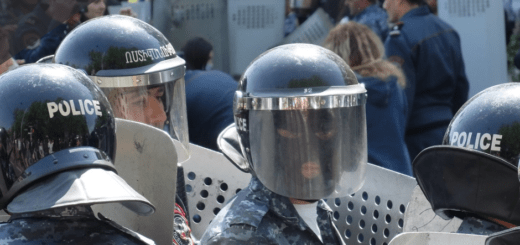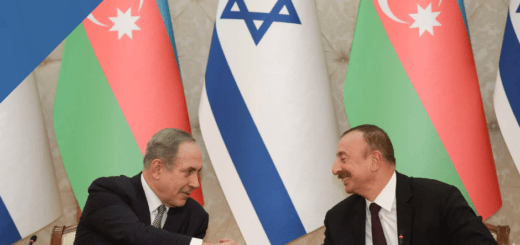German Television Exposes Azerbaijan’s Massive Bribery of European Officials

This is not the first time that autocratic Azerbaijan has come under scrutiny for handing out billions of dollars in bribes to Western officials to ignore its massive violations of the human rights of its own population and Artsakh Armenians.
The term ‘Caviar diplomacy’ was coined to describe specifically the corrupt practices of Azerbaijan in European institutions. Regrettably, some equally corrupt European officials were happy to pocket the millions of dollars offered to them by Azerbaijan.
“Bringing this intricate web of influence and manipulation to light is a groundbreaking film by German broadcaster ARD, ‘Am Abgrund’ (on the precipice). Though the film is fiction, it is based on a series of investigations dubbed ‘Azerbaijani Laundromat,’ exposing how the Azerbaijani government bribed the Council of Europe politicians. The investigations published in 2017 discovered how the government of Azerbaijan was the driving force behind a $2.9 billion secret slush fund that may have helped it pay off European politicians,” Lamiya Adilgizi wrote on the globalvoices.org website.
“Baku has cleverly navigated the corridors of power in Europe, winning over politicians with a mix of luxurious trips and direct cash payments. The aim? To ensure these influential voices speak up for Azerbaijan’s interests, particularly within the halls of the Parliamentary Assembly of the Council of Europe (PACE) and even Germany’s own Bundestag,” wrote Adilgizi.
The film, directed by investigative reporter Daniel Harrich, premiered at an event organized by the German Parliament on February 20. A follow-up documentary is planned to further reveal Azerbaijan’s corrupt lobbying efforts in Europe.
The film exposes both the bribe-giving Azeris and bribe-taking European officials. “At the heart of this tale is both Azerbaijan, a country rich in energy resources and scrutinized over its ruling government’s authoritarian practices, but also European countries, known as champions of democracy, rule of law, and human rights, who have long been mentors to the emerging nations from the Soviet era. But here’s the twist — instead of spreading these cherished values, it seems they, too, are vulnerable to corruption….”
The movie starts with Azerbaijan’s efforts to silence its domestic opponents who are thrown in jail for bravely exposing the regime’s human rights violations. It features “dramatic scenes that replicate footage from hidden cameras planted in the bedroom of renowned journalist Khadija Ismayilova in 2012, exposing her private life. Ismayilova penned a series of investigations into government corruption linked to the ruling family of Aliyevs. The leaked footage aimed to tarnish the journalist’s reputation. Ismayilova was later jailed on bogus charges and spent two years behind bars as a result.”
The film follows “Gerd Meineke, a fictional member of the German Bundestag who also serves in the Council of Europe. Meineke discovers that the latter institution created back in 1949 to foster democracy and the rule of law has been compromised and that German Members of Parliament have been swayed by Azerbaijan’s regime, trading their votes in the Council of Europe for money, gold, prostitutes, and other bribes, betraying the principles of democracy and human rights.”
Meineke’s attempt to pass a resolution condemning Azerbaijan for its numerous political prisoners is defeated by other members after receiving bribes from Azerbaijan.
During the discussion following the screening of the film, director Harrich said: “The issue extended beyond the government of Azerbaijan and implicated Western politicians and societies in the corrupt practices fueled by Azerbaijan’s natural resources. Among the guests to the screening was the German Member of Parliament Frank Schwabe who has recently become known for his loud criticism of the Azerbaijani government. It was Schwabe who challenged the credentials of the Azerbaijani delegation at the PACE during the Assembly’s opening winter session in January 2024.”
Schwab told Global Voices that his attempt to tell the truth about Azerbaijan “aligns with the mission of the Council of Europe. If a member of this organization doesn’t respect its principles, then action is necessary.” After boycotting Russian gas due to the war in Ukraine, Europe started buying gas from Azerbaijan which is partly imported from Russia. However, “it’s crucial that we don’t overlook human rights violations for the sake of trade relationships,” Schwab said.
After PACE’s refusal to ratify the credentials of Azerbaijan’s delegation in January 2024, “‘the timing [for the film’s launch] couldn’t be better,’ said Gerald Knaus, the chairman of the European Stability Initiative, a think tank, and a vocal critic of the Azerbaijani government, in an interview with Global Voices. His think tank coined the term ‘caviar diplomacy’ in 2012 and was the first to document Azerbaijan’s influence at the Council of Europe.”
Knaus warned of the possible expulsion of Azerbaijan from the Council of Europe if it does not release its political prisoners by April 2024, the 75th anniversary of the Council of Europe.
There are over 200 political prisoners in Azerbaijan.








Great article on an important topic.
Azerbaijan has also bribed members of Congress, and Mr. Sassounian has written about this.